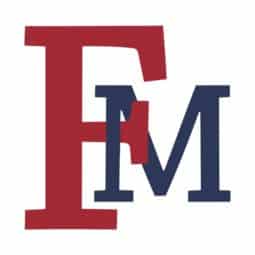Industrial Engineering
Industrial engineering focuses on the design, improvement, and installation of integrated systems of people, products, equipment, infrastructure, and information. Industrial engineers are creative problem solvers who work together to observe, model, and improve systems from healthcare, manufacturing, transportation/logistics to emergency response, agriculture, finance, and energy.
The Bachelor of Science in Industrial Engineering degree program is a 4-year program. The program was created in response to demand from local industries. A study conducted by Francis Marion University suggested a need for industrial Engineers in the Pee Dee Region of South Carolina. The program is the only industrial engineering program in the Pee Dee Region and is housed in the Department of Physics and Engineering. Graduates complete a unique 122-credit hour curriculum that includes instruction in engineering, physics, and mathematics.

FMU’s Industrial Engineering program is accredited by the Engineering Accreditation Commission of ABET, under the commission’s General Criteria and Program Criteria for Industrial Engineering.
Course Requirements
Industrial engineers analyze and evaluate methods of production and help organizations improve systems and processes that improve quality and productivity. They work to eliminate any waste of time, money, materials, energy, and other commodities.
An industrial engineering graduate will be prepared for a career in business, healthcare, consulting, government, or manufacturing. The industrial engineering program provides students with a rigorous study of the theory of the industrial engineering discipline, including areas of physics, mathematics, and business.
A major in industrial engineering requires completion of the following courses:
Engineering
- ENGR 101 – Introduction to Engineering
- ENGR 201 – Engineering Graphics
- ENGR 220 – Materials Engineering
- ENGR 252 – Operations Analysis and Management
- ENGR 301 – Engineering Mechanics
- ENGR 310 – Electronics and Instrumentation
- ENGR 320 – Statistics for Engineers
- ENGR 330 – Engineering Economy
- ENGR 350 – Manufacturing Processes
- ENGR 356 – Quality Control
- ENGR 373 – Operations Research
- ENGR 420 – Human Factors Engineering
- ENGR 467 – Supply Chain Engineering
- ENGR 468 – Production Planning
- ENGR 470 – Facility Design
- ENGR 480 – Industrial Engineering Senior Design
Physics
- PHYS 200 – Technical Physics I
- PHYS 201 – Technical Physics II
- PHYS 202 – Technical Physics III
- PHYS 220 – Computational Methods for Physics and Engineering
Mathematics
- MATH 201 – Calculus I
- MATH 202 – Calculus II
- MATH 203 – Calculus III
- MATH 210L – Calculus I Workshop
- MATH 304 – Linear Algebra
- MATH 306 – Multivariable Calculus
Chemistry
- CHEM 111/111L – General Chemistry I: General Concepts in Chemistry/Lab
English
- ENGL 318 – Technical Communication
Economics
- ECON 203 – Introduction to Microeconomics
- ECON 204 – Introduction to Macroeconomics
Additional Information
- In addition to the course requirements above, the student is encouraged to pursue a summer of supervised training at a professionally related site off campus.
- No additional minor or collateral is required.
- The minimum number of semester hours required in engineering courses is 51.
- The minimum number of semester hours in all courses (major and non-major) required for the industrial engineering degree is 122.
- Upon earning credit toward graduation (grade of D or better) in ENGR 252, industrial engineering majors receive the designation of “Upper-Level Engineering Students.”
- NOTE: Upper-Level Engineering students are subject to higher tuition for their remaining semesters of studies (normally their last 4 semesters) as detailed in the University’s Tuition & Fees publication.
Course Descriptions
-

PHYS 220 - Computational Methods for Phys/Engn
Prerequisites/Corequisites: Take PHYS-201. (Required, Previous).
Credit Hours: Min: 3; Max:Description: An introduction to the computational tools and...
Courses Found: 31
Mission
The mission of the Industrial Engineering program is to prepare undergraduate students with the skills, capabilities, confidence and knowledge to fulfill the local and regional needs of South Carolina. The program is dedicated to recruiting, educating, and retaining a diverse student population by offering a rigorous, comprehensive and unique curriculum that enables students to learn current Industrial Engineering concepts.
Facilities
The Industrial Engineering program uses the educational facilities in the Leatherman Science Facility (LSF) at Francis Marion.
ABET Accreditation
View information on ABET and the ABET accreditation policies and procedures within the IE program at Francis Marion University.